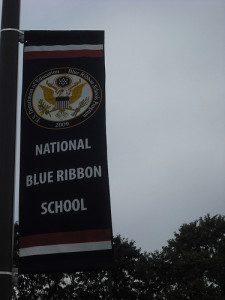Posturing your child for the best school placement is nearly universal in America today. From one neighborhood to the next, one county to the other, schools vary greatly in their official test scores, achievements and ratings. We want the best for our kids, right?
What if the best is not really the best?
Malcolm Gladwell published a list of statistics about the number of economics majors who had articles published in academic journals following graduation, comparing the students from elite colleges and universities with average schools (the field of economics provided a fairly level base across the board). What did he find?
 Being in the top 10% of a decent school brought the same results as being in the top 35% of an elite school. What does this mean?
Being in the top 10% of a decent school brought the same results as being in the top 35% of an elite school. What does this mean?
If you would be in the middle of the pack (a “small fish in a big pond” as he calls it) at an elite school, but you could excel at a decent school (a “big fish in a small pond”), you will have the same opportunities in life. Say you have a 1300 on the SAT and a 4.3 GPA. This would be about average at an elite school and could probably get you in, but at a decent school, you would be among the top of the class. The question then becomes, “How will you fare along the journey?”
When considering elementary, middle and high schools, elements like safety and security can be important. But the school’s test scores, ranks and ratings may not be as important as we think.
If your child is at the top of his or her class, you consider whether moving to a more competitive situation would be better for them. Would their performance improve, would the opportunities be better, or would their spirit be crushed?
Being crushed is a very real possibility in a big pond.
I put my own academic journey through this lens. I excelled through my first two years of high school in a small pond, but during my last two years, I was somewhere in the middle of an even smaller pool. I did fine, but I struggled with a few classes.
Would I have fared better in a less-competitive environment?
College put me in a big pond, and I was a very, very small fish. Very small. Nobody knew me, and I didn’t try very hard to be known in the academic world. I know the extracurricular activities were what shaped and molded me, but I consider:
If I had to do it again, would I?
Every time I hear a student is visiting my alma mater, I ponder their circumstances. How will they fit in? Will they fit in? Will they excel, or would they be better off as a bigger fish in a smaller pond?
Parents will continue to be confronted with this dilemma. I do not regret any of my academic ventures because of the opportunities I had along the way.
But that doesn’t mean I won’t ask the question when our kids go through school.



Listening On Purpose